My Father: A Princetonian in China
Theodore (Teddy) X. Zhou ’83, first undergraduate admitted (as a transfer) from China since 1949, did not start college until age 28, due to the Cultural Revolution (1966-76). After receiving his Ph.D. in physics at Brown in 1989 he worked in the fields of thin film technology and materials science until retirement. He and his wife have been living in the Princeton area since 1998.
One day in the fall of 1929, a spectacled Chinese student walked into the office of Professor Karl Taylor Compton [1], chairman of the physics department and director of Research at Palmer Physics Laboratory at Princeton. He was excited to be in this prestigious university and to meet the world-renowned physicist. The professor kindly gave the young man a tour and assigned him to work in the gas discharge lab. The student was my father, Tung Ching Chow *33, who came to Princeton after graduating from Tsinghua University with the Boxer Indemnity Scholarship. And the lab where he would spend days and nights in the following years is now embedded in Palmer’s modern expansion, the Frist Campus Center.
It took father less than four years to complete his study at Princeton and to return to China with a passion for science and dedication to education, which many believed were the most needed for the young Republic, although the Communist insurgence was already spreading in some areas. The Princeton education combined with his intellectual brilliance catapulted him into the highest ranks of academia at a very early age. The eight-year long Sino-Japanese War caused dislocation but also an opportunity to aid the war effort. The Republic, undefeated by the Japanese, was eventually displaced by the People’s Republic. Under the name of the People were many new rules, demanding submission and compromise, especially of the educated professionals, a lesson father did not learn very well. For him, honesty and integrity were among things not to be compromised. Finally, the “Cultural Revolution” not only halted, but also condemned academic advances and the men who served in the vanguard. The country barely survived, but father’s career did not.
Father was born on Dec. 21, 1907 in Kunshan, a small town about 30 miles west of Shanghai, to a liberal-minded teacher’s family. At age 14, he was sent to Nanking, 150 miles to the west, to attend Southeast University Middle School, a boarding school affiliated with the university, one of the oldest in China. There, he developed his interests in science, inspired by Professor Chi-Sun Yeh [2] , who taught at the school and had been father’s mentor ever since. In 1925 Yeh joined the faculty at the newly founded College Department of the Tsinghua School [3]. The pupil followed his mentor to Tsinghua and became a student of its first college class. Unlike their predecessors, who were destined for American colleges, the new students had to be qualified for post-graduate studies abroad.
After graduation in 1929 with the top score on the exams, father was admitted to Princeton. He was proud to become a student of Compton, well known in the field of gas ionization and brother of the 1927 Nobel Prize winner Arthur Holly Compton. Father took two courses from Compton, Ionization in Gases and Electron Theory of Matter, in the 1929-30 academic year. His research on gas ionization spectroscopy was supervised by Prof. Henry DeWolf Smyth [4] who succeeded Compton after he left for MIT. His work was published in Physical Review (Vol. 37, 1931 and Vol. 44, 1933), and presented at the American Physical Society Meeting in 1932.
Father was granted his Ph.D. by the board of trustees on Jan. 12, 1933, only about three-and-a-half years after his enrollment. On his way back to China he toured several research institutes in the Great Britain, Germany and the Soviet Union, spending all the savings from his stipend [5].
Upon returning to China father became the youngest full professor at Peking University, at age 26. There he established a grating spectroscopy lab with limited resources and published two papers in the Chinese Journal of Physics. He and my mother were married in 1934 and their first child, my eldest sister, was born in the following year. In 1936, father was recruited by the National Central University in Nanking, formally the Southeast University, to serve as chairman of the physics department. Father’s rapid ascension to the top of China’s academic elite was indeed dazzling. And his vision of building China’s best laboratory of modern physics was to be put to work if history allowed. Unfortunately, the full-scale Sino-Japanese War broke out in the summer of 1937, only four years after father’s return to China and one year after his appointment at the Central University.
As the Japanese army quickly advanced, the national government in Nanking was relocated to Chungking, 900 miles further inland. The Central University, like other colleges, with all students and faculty, was also on its way to Chungking. In that summer, my mother and two sisters, a toddler and an infant, had been in a resort 150 miles away, waiting for a new residence to be furbished. The retreat was so sudden that they had no time to return home to collect the belongings but immediately joined the millions of refuges to go by all means possible to the inland. Father traveled separately to escort the laboratory equipment. The family was finally reunited in late March 1938 in Chungking and settled there for the next eight years.
The war threw the entire world into a different mode. Many renowned physicists in the United States, including father’s admired Compton brothers, collaborated with the military in significant ways [6]. Father’s wartime contribution was the development of China’s first echo-sounder, commissioned by the country’s Department of Economics. The technology was invented in 1913 and quickly adopted for military application for mine and submarine detection. Father’s mission was to use the technology to automatically survey the rivers around Chungking , then the major routes to the rest of the country. With limited resources and information father’s team built the device from the first principles. This work had been meticulously recorded in a 30-plus-page report [7] hand written with beautiful calligraphy that we discovered about 10 years after father’s passing. The completed device was calibrated in a water tank to their satisfaction and then tested on a boat in a river near the university campus. The work was later summarized and published in Science, the Journal of Academia Sinica, in 1943.
Japan was finally defeated in August 1945. In 1946 the National Government returned to Nanking. Our family moved to Shanghai, the pre-war home of National Chiaotung University, where father had been teaching since 1943. As a founding member of the United Nations the Republic of China appeared to be on her way to emerge as a new world power. But the Chinese Communist Party, much strengthened during World War II, had a different plan. It took the Party only four years to “liberate” China and chased the Nationalists out to the island of Taiwan.
China’s educated elite had been largely left-wing, if not outright communist sympathizers. Now it was their turn to earn the trust from the new regime by “reform” their “bad thoughts” inherited from “the old society.” The “thought reform” turned out to be only a prelude to the waves of political campaigns that eventually brought China’s educated to full submission, with few exceptions, whose reward was further humiliation if not elimination. At the same time, the new government needed engineers, doctors, teachers, and even entertainers, so it followed the Soviet style of paying well to the conforming professionals, to encourage them to “serve the people.” Father was one of them.
One day in late 1953 Shanghai’s newspaper printed a photograph of father with his former student and then colleague Jun-Hsin Fang, holding China’s first X-ray tube. Both of them were now on faculty at Fudan University after a Soviet style reorganization of institutes of higher learning that reshuffled students and faculty. The project started at Chiaotung as father decided to make their own X-ray tube to replace a damaged one which paralyzed their experiments. This coincided well with the country’s urgent need for medical and military equipment banned by the U.S.-led blockade during the Korean War. The project was blessed by the government with resources and personnel. The X-ray tube success was hailed as a significant breakthrough and the Party was pleased. In 1955 father was named an Academician of the National Academy of Sciences and appointed professor of the highest rank.
In 1956, under the Party’s directive of the “March to Science” and thanks to father’s renewed eminence, his optics group enjoyed a generous funding enabling the acquisition of some state-of-the-art equipment. For the first of time since 1949 he enrolled two graduate students into the Soviet style Kandidat nauk (candidate of science, dubbed associate doctorate in Chinese) program. He subscribed to Russian physics journals with his own money to keep himself and the group updated as all communication with the West was cut off. As a strong believer in fundamental research, father was poised for a new start.
Around the same time father was invited by the university Communist Party secretary to join the Party. After a few days studying its bylaws, he told the secretary: “The Party demands its members of absolute loyalty and unconditional obedience, to this I am afraid I cannot commit.” Had he joined the Party, his career path would have been much easier. But father selected a different path, much less traveled those days.
The Party had limited trust, if any, for someone who declined its invitation. In early 1958, when father returned from a conference in India, he could not find his graduate students. It turned out that they were sent to a suburban farm to raise pigs (and have their thoughts reformed). When the students eventually returned, they were assigned to teaching, thus ending their “March to Science.” Later father learned that those two were the only graduate students of the entire university that were sent away, apparently with the sole purpose of disabling his research projects.
In the spring of 1964, father, never interested in politics, was suddenly informed that he was “elected” a “People’s Representative” to the third National People’s Congress, the nominal legislature of the People’s Republic. He flew to Beijing to attend the first (and only) session of the Congress and heard Premier Chou En-Lai’s address calling for modernizing China’s “industry, agriculture, defense, and science and technology.” This no doubt was a shot in the arms of many enthusiastic scientists like father who had been intimidated and confused by waves of political and economic campaigns such as the anti-rightist campaign that banished half a million and the Great Leap Forward that resulted in the worst peacetime famine in China’s history.
Unfortunately, the rollercoaster did not stop at the top. Chairman Mao, temporarily sidelined for his responsibility for the economical disasters, was quietly preparing for a comeback. In little over two years after Chou’s call for modernizations, Mao launched the Great Proletarian Cultural Revolution.
In the summer of 1966, curricula were suspended in all schools for teachers and students to “take part in the Revolution.” The scholars were the first targets to be labeled “monsters and demons” for anything they might have said or written that were deemed anti-Party and anti-socialism. To some extent it was a synchronized youth rebellion orchestrated by Mao, as millions of youngsters, me included, were encouraged to challenge and criticize their teachers and elders. This “criticism” soon became violent as “leniency towards enemy is cruelty towards comrades,” allegedly attributed to Maximilien de Robespierre of the French Revolution. The “monsters” were paraded in the streets, wearing hats labeled with their “crimes,” and often beaten.
In one of the “denunciation meetings” father was a “co-defendant” of a colleague, his alleged protégé, who was accused of counter-revolutionary speeches. “Defendant” is a wrong word because no defense was allowed. Father, age 59, was forced to kneel on concrete ground under the scorching sun in front of his students, colleagues and his terrified and confused 16-year-old son. The crowd was shouting: “Confess! Confess! If the enemy does not surrender, let him perish!” Later at home, with bruised and bleeding knees and legs, father seemed more confused than hurt and asked, “What have I done wrong?” A mind trained and skilled for analyzing complex data and mysterious phenomena failed miserably at measuring the breadth of madness and the depth of evil. He did not know yet that his younger colleague, the main target of the denunciation meeting, would take his own life that night, at age 40. The death toll of this single university reached the dozens in those days.
Compared to some of his colleagues, father’s accusation was relatively minor. According to one of the “big character posters” [8], he once said: “Chairman Mao’s ‘Three-Wellness’ teaches students to be fit, to study well and work hard; this is exactly what I saw in many American college students who excelled in sports, academics as well as social activities.” What an insane time it was that such a complementary remark could be accused a crime of blasphemy.
In early 1970s, after being released from months of interrogation for his part-time employment with the defense agencies during World War II, father was assigned to the so-called “Grand Critique Group,” formed by the senior faculty members (i.e., the “monsters”). They were tasked to compose articles aimed at challenging the world authorities in humanities and sciences with the doctrines of Marxism, Leninism, and Mao Thought. One of such targets was Albert Einstein and his theories of relativity. To this task father responded: ”Einstein’s theories have been verified by experimental evidence. I would be willing to challenge Einstein if someone could provide me with data [that could prove him wrong]. Without evidence I am not able to do this.” A direct rebuttal like this could have serious consequences in those days.
To this day people remember father’s honesty and integrity, which were the main casualties of the Cultural Revolution, indeed the darkest period of contemporary Chinese history.
The nightmare was finally over shortly after Mao’s death on Sept. 9, 1976. Father and his colleagues were gradually “rehabilitated” — that is, they had their positions and privileges reinstated. Unfortunately by then he was already in the early stage of Alzheimer’s, a disease yet to be known in China. His first symptoms of dementia were interpreted by some as his contempt against those who had betrayed him. Yet many soon realized what happened to their beloved teacher and friend and speculated that the traumatic experience during the Cultural Revolution could have triggered the onset of the disease before age 70.
Father died on Feb. 13, 1989.
In 2007, honoring father’s 100th birthday, we dedicated to him a stone in the Princeton University Chapel:
[1] Karl Taylor Compton (1887-1954) was on Princeton faculty since 1921. He was appointed director of research of Palmer Physical Laboratory in 1927 and chairman of physics department in 1929. He became president of MIT in 1930.
[2] Chi-Sun Ye (Ye Qi Sun 葉企蓀,1898-1977), educated at Chicago (B.A., 1920) and Harvard (Ph.D. , 1925), was one of the founders of physics education in China.
[3] Tsinghua was established in 1911, funded by the Boxer Rebellion Indemnity Fund, as a preparation school for study in the United States. The College Department was renamed National Tsinghua University in 1928.
[4] Henry DeWolf Smyth (1898-1986) was a faculty member at Princeton from 1924 to 1968. His research interests shifted to nuclear physics, and he was the author of the first public report on the Manhattan Project.
[5] Father recalled in his brief memoir being awarded a “Golden Key” by Princeton for his achievements. But in order to save money for the European tour he only took home a certificate but not the key. Unfortunately, no record of this award has been found, either at home or at Princeton.
[6] Arthur Holly Compton was a key figure in the Manhattan Project whereas Karl Taylor Compton served on the National Defense Research Committee.
[7] In the inside cover it was noted to be a duplicate of the report submitted to the Ministry of Economy.
[8] These posters were used to publicly accuse anyone of anti-Party and anti-socialist crimes.


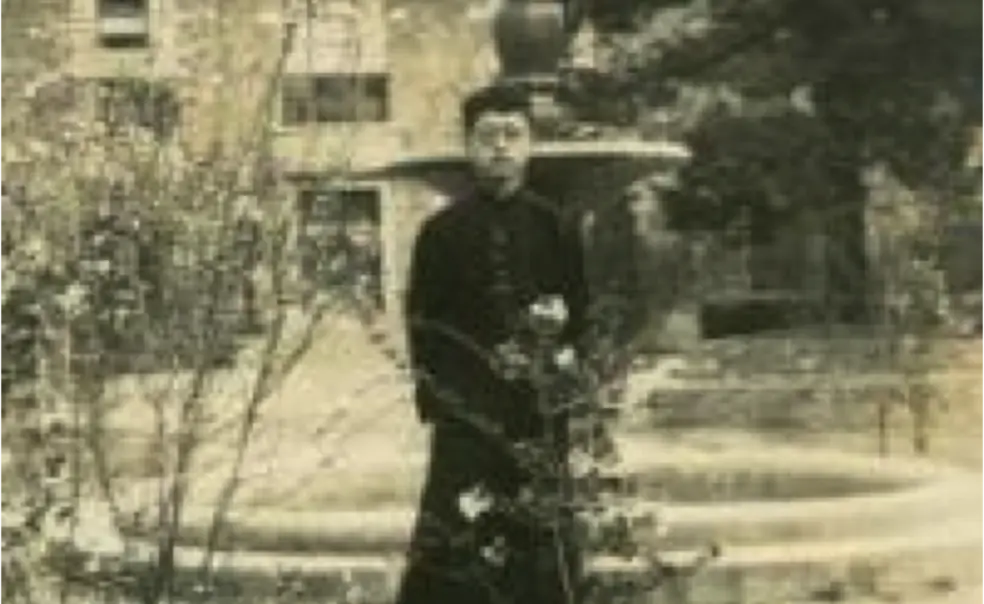
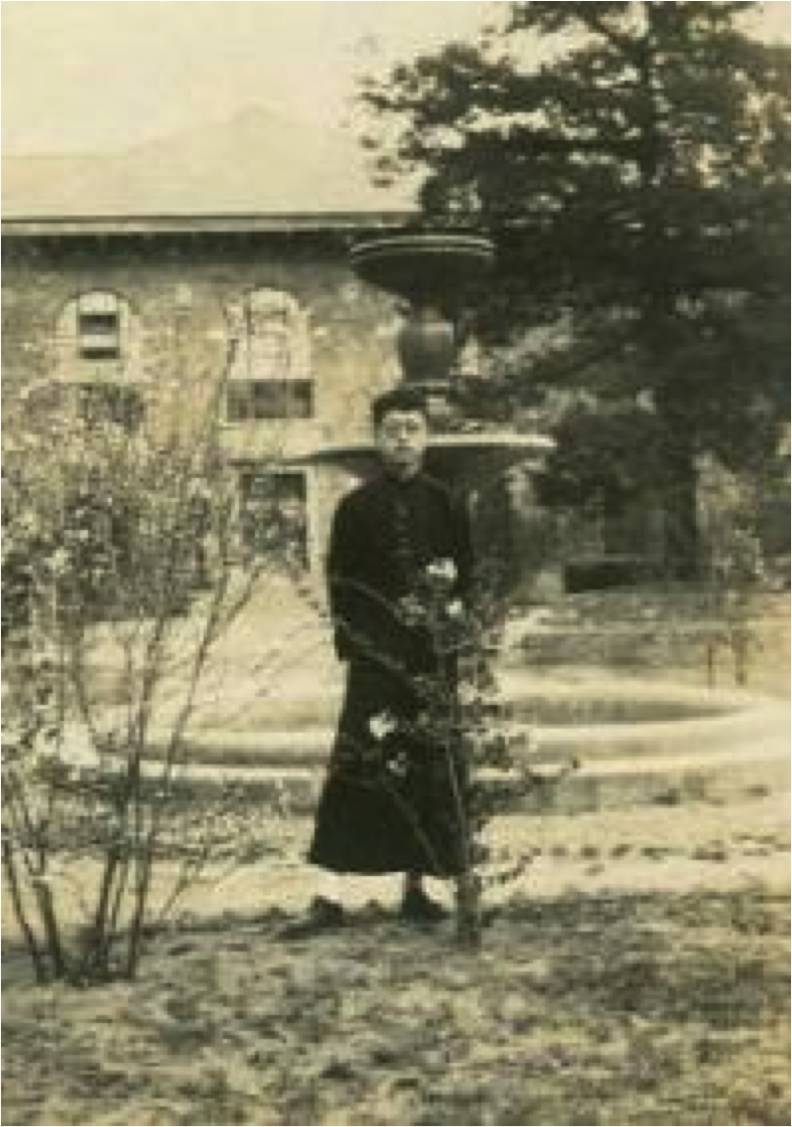
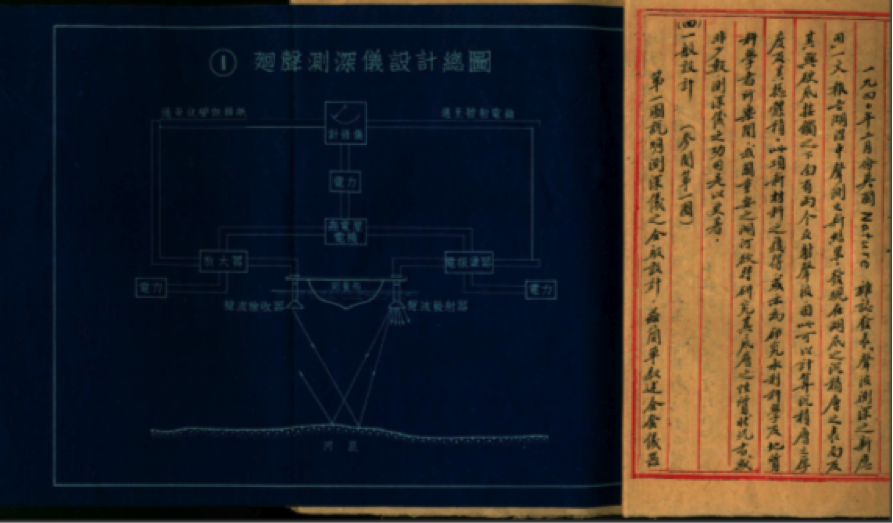
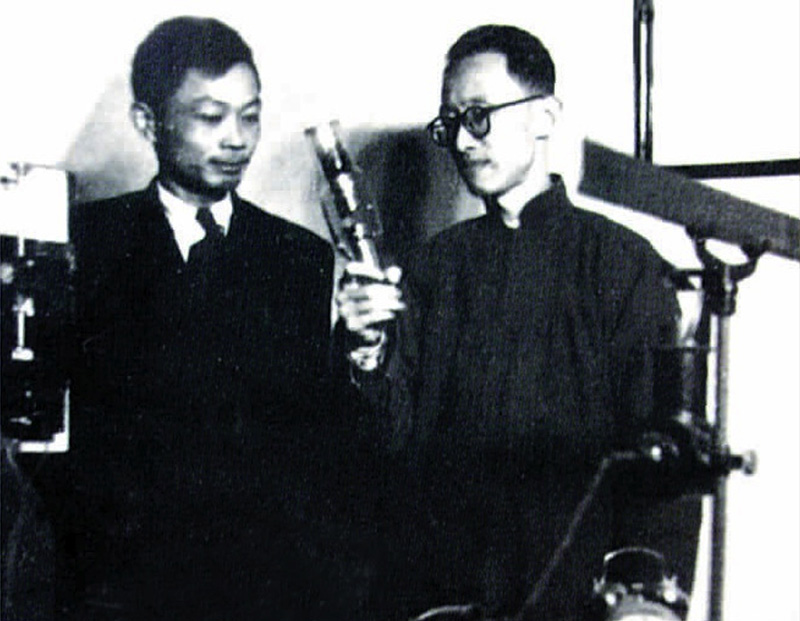
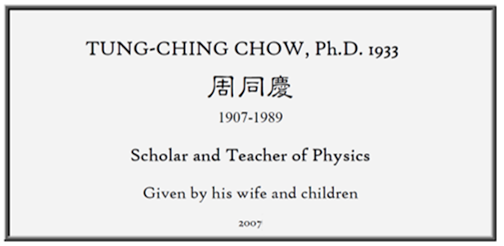









2 Responses
Nicholas Clifford ’52
10 Years AgoChinese Scholars
Re Theodore Zhou ’83’s “My Father: A Princetonian in China” (posted June 26 at PAW Online): a fascinating (and unfortunately typical) story of what happened to so many Chinese, especially those who’d made the mistake of being educated in the West prior to ’49.
Many years ago a letter to me (I was provost at Middlebury at the time, and a historian of China) from Beijing introduced the writer as a former student at the Middlebury German School in 1947, who was now looking at the possibility of finding an opening for her son. His mother and father had gone back to China after 1949 determined to help the motherland, and needless to say were not given an easy time, particularly during the Cultural Revolution. We admitted the young man, and as he spoke pure Beijing Mandarin, put him to work as a drill instructor in our first-year Chinese program. He now lives in California, and has had a couple of careers both in this country and China.
George Chang ’63
10 Years AgoChinese Scholars
What a remarkable story! I hope that Theodore Zhou will join us at our conference of Asian and Asian American alumni in October. I wonder if the elder Professor Chow *33 knew my father. Dad was an instructor in National Central University a few years before Chow’s return to China. By the time Chow returned, Dad had won a similar national scholarship, and was in the United States. Fortunately for me, our family stayed here.